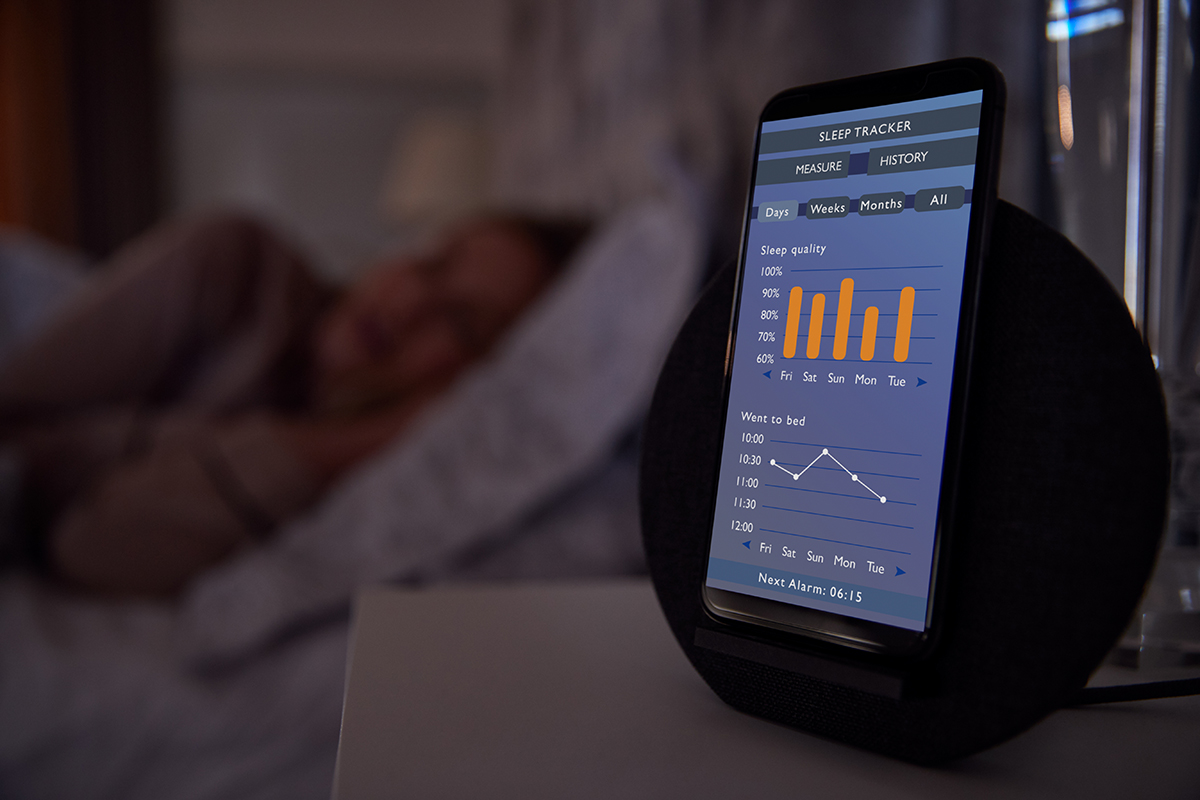The vitality of quality sleep is often undermined in our fast-paced, 24/7 society. Yet, it is a critical component of overall health and well-being. This comprehensive guide seeks to elucidate the profound connection between sleep and health, offering a deep dive into the physiological processes during sleep, the repercussions of sleep deprivation, and tips for improving sleep quality for better health.
Table of Contents
- The Importance of Sleep
- The Science of Sleep
- Understanding Sleep Cycles
- Common Sleep Disorders
- The Impact of Poor Sleep
- The Benefits of Good Sleep
- Sleep Across the Lifespan
- Tips for Improving Sleep Quality
- Sleep Hygiene
- Sleep Aid Technology
- Conclusion
The Importance of Sleep
Quality sleep is as essential to our health as eating a balanced diet and engaging in regular exercise. It is during sleep that our body rejuvenates, restores, and repairs itself. A myriad of crucial processes take place during this time, including the release of hormones that regulate growth and appetite, consolidation of memories, and the restoration of energy reserves. Sleep is also essential for cognitive function, creativity, productivity, and emotional balance.
Despite this, the value of sleep is often overlooked, with many people regarding it as a waste of productive time. However, neglecting sleep is not without consequences, often leading to chronic health issues, decreased life quality, and diminished cognitive performance. It’s critical to understand that sleep isn’t a luxury—it’s a biological necessity.

The Science of Sleep
Sleep is a complex physiological process that is still not completely understood. What we do know is that it’s regulated by two primary systems: the circadian rhythm, or ‘internal body clock,’ and the sleep-wake homeostasis.
The circadian rhythm follows a 24-hour cycle, influencing various bodily functions like body temperature, hormone secretion, and sleep-wake patterns. It’s primarily driven by external cues, such as light and temperature. When your eyes perceive darkness, the suprachiasmatic nucleus (SCN) in the hypothalamus signals the production of melatonin, a hormone that promotes sleep.
Sleep-wake homeostasis, on the other hand, is an internal system that signals when you need to sleep or wake based on how long you’ve been awake or asleep. This ‘sleep drive’ builds up during your waking hours, making you feel increasingly sleepy. Once you fall asleep, this drive decreases until you’re fully refreshed and ready to wake up.
Understanding Sleep Cycles
Our sleep is not a continuous, homogenous block but is instead divided into several cycles. Each cycle consists of four stages: three stages of non-REM sleep and one stage of REM sleep.
Stage 1 is the lightest stage of non-REM sleep, often defined by slow eye movement and reduced muscle activity. This stage serves as the transition between wakefulness and sleep.
Stage 2 of non-REM sleep is when our heart rate and body temperature drop. Brain waves become slower, with occasional bursts of rapid waves called sleep spindles.
Stage 3 is the deepest stage of non-REM sleep. It’s during this stage that the body undergoes most of its physical restoration.
Finally, REM (Rapid Eye Movement) sleep, also known as paradoxical sleep, is characterized by random and rapid movements of the eyes, increased respiration rate, and temporary paralysis of the body’s muscles. It’s during REM sleep that most dreaming occurs, and it plays a crucial role in memory consolidation and mood regulation.
A complete sleep cycle takes about 90 to 110 minutes, and we typically experience four to five sleep cycles in a single night’s sleep. The understanding of these stages and cycles is critical because the quality of sleep depends not only on the total sleep duration but also on how much time is spent in each stage.

Common Sleep Disorders
Disruptions to normal sleep patterns can lead to sleep disorders, which can significantly impact health and quality of life. Some of the most common sleep disorders include:
- Insomnia: Characterized by persistent difficulty falling asleep or staying asleep despite having ample opportunity to do so. It can lead to daytime sleepiness, low energy, irritability, and a depressed mood.
- Sleep apnea: A serious sleep disorder that occurs when a person’s breathing is interrupted during sleep. If left untreated, sleep apnea can result in a number of health problems, including hypertension, stroke, and heart failure.
- Restless Legs Syndrome (RLS): A neurological disorder characterized by an irresistible urge to move the legs, typically in the evenings.
- Narcolepsy: A neurological disorder that affects the control of sleep and wakefulness. Symptoms include excessive daytime sleepiness and sudden attacks of sleep.
It’s essential to consult a healthcare provider if you suspect that you or a loved one might have a sleep disorder. Early diagnosis and treatment can help manage the symptoms and enhance sleep quality.

The Impact of Poor Sleep
Poor sleep or chronic sleep deprivation can have severe implications on both physical and mental health. It’s not merely about feeling groggy or irritable; long-term sleep deprivation can lead to chronic health conditions and negatively impact the quality of life. Some of the significant effects include:
- Reduced Cognitive Function: Lack of sleep impairs attention, alertness, concentration, reasoning, and problem-solving abilities, making it harder to learn efficiently.
- Emotional and Mental Health Issues: Sleep deprivation can lead to mood swings, anxiety, and depression. Chronic sleep issues can even lead to more severe mental health disorders.
- Immune Function: Persistent sleep loss can weaken your immune system, making you more susceptible to infections.
- Increased Risk of Chronic Diseases: Sleep deprivation increases the risk of chronic health issues, including heart disease, high blood pressure, diabetes, and stroke.
- Weight Gain: Lack of sleep seems to be linked to an increase in hunger and appetite, which could lead to overeating and weight gain.

The Benefits of Good Sleep
On the flip side, getting an adequate amount of quality sleep can significantly improve your health, mood, weight, and even your productivity. Here are some significant benefits:
- Improved Memory: Our minds are surprisingly busy while we sleep. During sleep, we can strengthen memories or practice skills learned while we were awake. It’s a process called consolidation.
- Longer Life: In general, those who sleep better, live longer. Too much or too little sleep is associated with a shorter lifespan.
- Spur Creativity: In addition to consolidating memories, your brain reorganizes and restructures them during sleep, leading to increased creativity.
- Better Physical Performance: Long-term studies on athletes have shown that more sleep leads to better performance, faster reaction times, and less fatigue.
- Healthy Weight: Regular, quality sleep can help maintain a healthy weight and reduce the risk of diabetes and obesity.

Sleep Across the Lifespan
Sleep requirements and patterns vary significantly across different stages of life. Here’s a brief overview:
- Infants and toddlers: They require the most sleep, ranging from 11 to 16 hours, including naps. Quality sleep is crucial for their rapid mental and physical development.
- Children: School-age children thrive on 9 to 11 hours of sleep a night. Lack of sleep can affect their growth, behavior, and academic performance.
- Teenagers: Despite their tendency to stay up late, teens need about 8 to 10 hours of sleep to support their rapid physical and emotional development.
- Adults: Most adults require 7 to 9 hours of sleep per night. Chronic deprivation of sleep can lead to health issues, including obesity, diabetes, cardiovascular disease, and even early mortality.
- Older adults: Sleep patterns often change as we age, with many older adults experiencing difficulty falling asleep and more nighttime disruptions. Despite this, the requirement for sleep does not decrease with age, and adults over 65 should still aim for 7 to 8 hours of sleep per night.
Tips for Improving Sleep Quality
Improving sleep quality doesn’t have to be a daunting task. Here are some evidence-based tips to enhance your sleep:
- Stick to a Sleep Schedule: Set aside no more than eight hours for sleep. Consistency reinforces your body’s sleep-wake cycle and helps promote better sleep.
- Pay Attention to What You Eat and Drink: Don’t go to bed either hungry or stuffed. Avoid nicotine, caffeine, and alcohol, which can disrupt sleep.
- Create a Restful Environment: Keep your bedroom quiet, dark, and cool. Consider using room-darkening shades, earplugs, or other devices to create an environment that suits your needs.
- Limit Daytime Naps: Long daytime naps can interfere with nighttime sleep. If you need to nap, limit yourself to about 20 to 30 minutes and make it during the mid-afternoon.
- Include Physical Activity in Your Daily Routine: Regular physical activity can help you fall asleep faster and enjoy deeper sleep.
Role of Technology in Sleep
In this digital age, technology plays a dual role in our sleep patterns. On one hand, electronic devices such as smartphones, tablets, and computers can significantly disrupt our sleep due to the blue light they emit. Exposure to this light suppresses the production of melatonin, a hormone that regulates sleep-wake cycles. Moreover, engaging with electronic devices before bed can stimulate the brain and make it harder to wind down and fall asleep.

On the other hand, technology can also be a powerful tool for improving sleep. Numerous sleep aid apps provide guided meditation, relaxing music, and ambient sounds to help individuals fall asleep more easily. Sleep tracking devices and apps can also provide valuable insights into your sleep patterns and help you make informed decisions about lifestyle changes to improve your sleep.

Seeking Help for Sleep Issues
Despite implementing good sleep hygiene practices, if you continue to have trouble sleeping or if you feel excessively tired during the day, it may be time to seek professional help. You might have an undiagnosed sleep disorder that requires medical intervention.
Doctors specializing in sleep medicine can help diagnose and treat a range of sleep disorders, ensuring that you get the rest you need for optimal health and wellbeing. Depending on your situation, they may recommend various treatments, from medication to cognitive behavioral therapy or even lifestyle changes.

Conclusion
The importance of sleep to our health cannot be overstated. It influences our physical health, mental well-being, and overall quality of life. Whether it’s bolstering our immune systems, aiding in memory consolidation, or reducing the risk of chronic diseases, the benefits of a good night’s sleep are manifold.
On the other hand, insufficient or poor-quality sleep can lead to a wide range of adverse effects, from mood disturbances and decreased cognitive function to severe health conditions. Therefore, understanding our sleep and implementing strategies to improve its quality should be a priority.
Remember, it’s not just about the quantity of sleep but also its quality. By recognizing the connection between sleep and health, and making necessary lifestyle changes, we can ensure that we’re giving our bodies the rest they need to rejuvenate and thrive.
If you’re struggling with sleep, don’t hesitate to seek professional help. In many cases, sleep disorders can be effectively managed with appropriate treatment, ensuring that you can enjoy the countless benefits that quality sleep has to offer.






